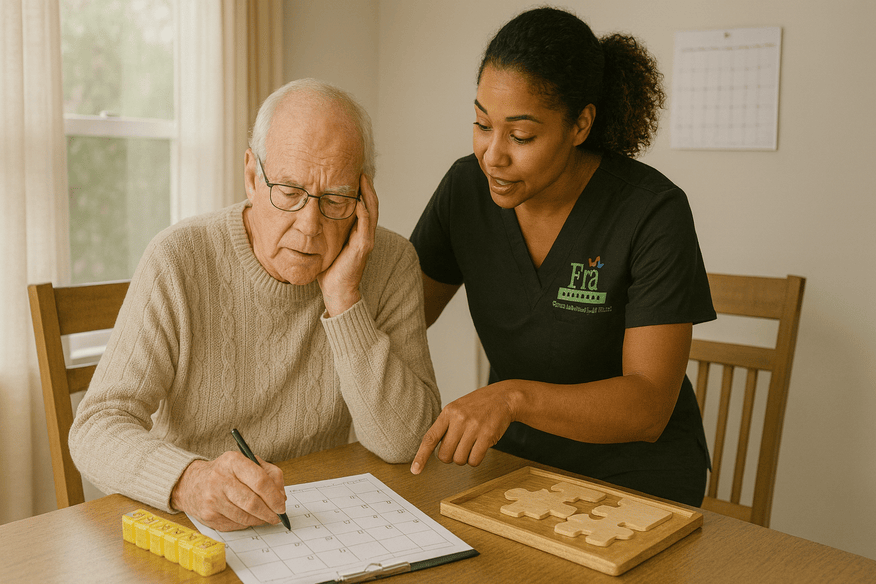Deciding when to add in‑home cognitive care is rarely a single moment. More often, it’s a pattern—small changes that add up to safety concerns, caregiver exhaustion, or missed medications. Here are signs to watch for and how personalized support at home helps.
Common signs and patterns
- Memory lapses that affect safety—leaving the stove on, missing medications, getting lost on familiar routes.
- Confusion and disorientation late in the day (“sundowning”), or difficulty following multi‑step tasks.
- Mood or behavior changes such as withdrawal, agitation, or loss of interest in favorite activities.
- Home environment decline—spoiled food, unopened mail, or clutter creating trip hazards.
- Caregiver strain—sleep loss, stress, or resentment, even with deep love and commitment.
How in‑home cognitive care helps
- Structured days. Gentle routines reduce anxiety and make life more predictable.
- Medication support. Timely reminders help maintain stability.
- Safety first. Caregivers check for fall hazards, supervise cooking, and encourage safe mobility.
- Meaningful engagement. Conversation, music, puzzles, and life‑story activities support dignity and connection.
Personalizing the plan
We begin with a conversation about strengths, preferences, and goals—favorite music, meal routines, cherished hobbies. Caregivers are matched for personality and experience, and care plans adapt as needs change.
Getting started
If you’re noticing two or more of the signs above, set up an assessment. Early support protects independence and relieves caregiver stress before a crisis.
You’re not alone. Era Life Care provides compassionate, practical cognitive care at home—designed around the person, not just the diagnosis.
Subscribe to receive the latest blog posts to your inbox every week.





